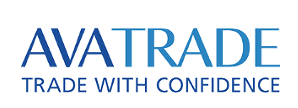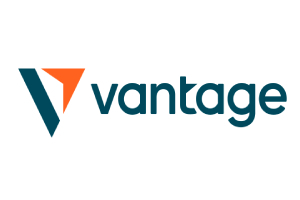Finance and investment are wide fields. Students can find many career opportunities in these fields. Universities offer a variety of degrees that give them a good foundation. A bachelor’s degree is often the first step toward a career in finance and investment. The degree should be in an appropriate field like economics or finance.
Professionals in finance and investment need to know about financial markets, investor behavior, and so much more. They need education and practical skills to handle their responsibilities. Here are some of the ways universities prepare students for careers in these fields.

Personal financial management courses
Some colleges offer online and in-person courses. They help individuals learn more about personal financial management. Personal finance courses cover most of the basics that may include:
- Budgeting
- financial planning
- debt management
- credit scores
- Investment basics
Undergraduate degrees
Undergraduate degrees usually offer a foundation for those who want to work in finance and investment. A Bachelor of Business Administration can help students to gain financial insights and analytical skills. These degrees are common at 4-year universities in the U.S. Coursework may include subjects like international finance and supply chain management.
Pursuing a degree in finance means that you need to work with huge sets of data and numerous Excel sheets. It will all take up space on your computer and might make it slow. If you have a Mac, then you can use CleanMyMac.com to optimize space on your computer and protect it from malware. Your Mac will feel like new and it even manages apps and extensions. It helps remove unnecessary apps and protects computers from online attacks and viruses. You can comfortably work with your financial sheets once your system is fast and has optimum space.
Graduate degrees
A Master of Business Administration (MBA) will equip students with a higher level of expertise. Finance and investing are very competitive fields. Students with an MBA degree and experience are in great demand. Doing an MBA involves learning more about topics such as global business and statistical data analysis.
Massachusetts Institute of Technology has a School of Business that’s a pioneer in finance and quant trading. It offers a Master of Finance that takes a year to complete. It begins with a summer workshop. The degree involves working on collaborative projects that deal with real-life financial problems.
The University of Chicago offers a Master of Science in Financial Mathematics. It involves studying how theoretical and applied math relates to trading and business. Students experience a simulation of a real trading floor. They have live access to Bloomberg screens. Various other universities that offer finance degrees also use simulations like this to help students apply their knowledge.
Visiting lecturers
Most universities that offer degrees in finance and investing will find suitable professionals in different fields to offer lectures. Cornell University has a financial engineering program. It is situated close to Wall Street. It often invites professionals from top Wall Street firms to give lectures.
They may give one lesson or teach a whole course to students as part of the program. Involving them helps to ensure the curriculum is up to date. The financial services industry changes quickly. Universities must move with the times to prepare students properly.
Networking opportunities
Many universities provide great alumni networking opportunities. Students can start networking while still in college. Harvard Business School in Cambridge, Massachusetts, is one of these schools. Networking opportunities can open up many doors for mentoring, internships, etc. The benefit of these opportunities can accelerate the learning process.
Mentoring
Mentoring students help them with the practical application of their knowledge. It’s no use if they get out into the real world and don’t know how to apply their knowledge. For example, a teacher/mentor may help them with portfolio management.
Internships
A school of business will often encourage students to join summer internship programs. These programs enable them to learn more about the real world of finance and investment. They can put their knowledge into practice through hands-on experience.
Job placements
Finance graduates of universities like MIT are placed at top financial investment and big banking firms. These include firms like Deloitte, J.P. Morgan, Morgan Stanley and Goldman Sachs. Graduates of the Haas School of Business from Berkley, California, all find placements at top firms in key financial markets. University of Chicago math graduates often secure jobs in leading financial firms. They may fulfill roles as traders, analysts, or quantitative researchers.
Conclusion
Students need to have key knowledge and skills if they want successful careers in finance and investment. Some of the knowledge comes with doing a degree. Degrees can give them a solid background in economics, financial markets etc. Other skills only come with practical application. Mentoring and internships can help to provide this. With education and experience, students can find job placements at top financial and investment firms.
- Broker
- Min Deposit
- Score
- Visit Broker
- Award-winning Cryptocurrency trading platform
- $100 minimum deposit,
- FCA & Cysec regulated
- 20% welcome bonus of upto $10,000
- Minimum deposit $100
- Verify your account before the bonus is credited
- Fund Moneta Markets account with a minimum of $250
- Opt in using the form to claim your 50% deposit bonus
Learn to Trade
Never Miss A Trade Again

Signal Notification
Real-time signal notifications whenever a signal is opened, closes or Updated

Get Alerts
Immediate alerts to your email and mobile phone.

Entry Price Levels
Entry price level for every signal Just choose one of our Top Brokers in the list above to get all this free.



